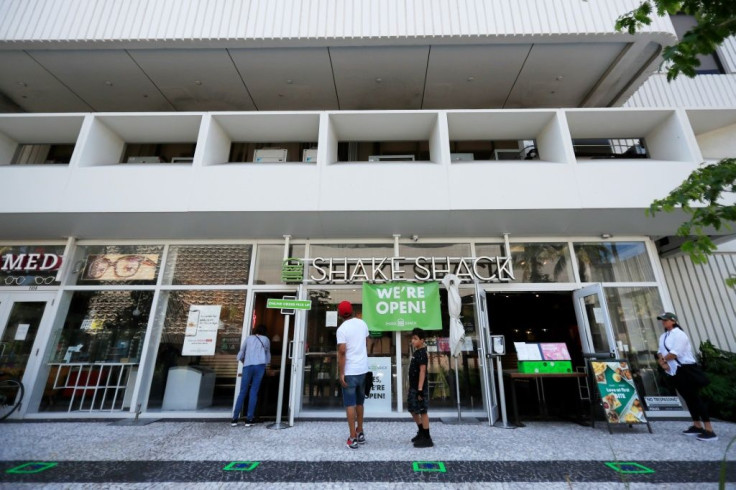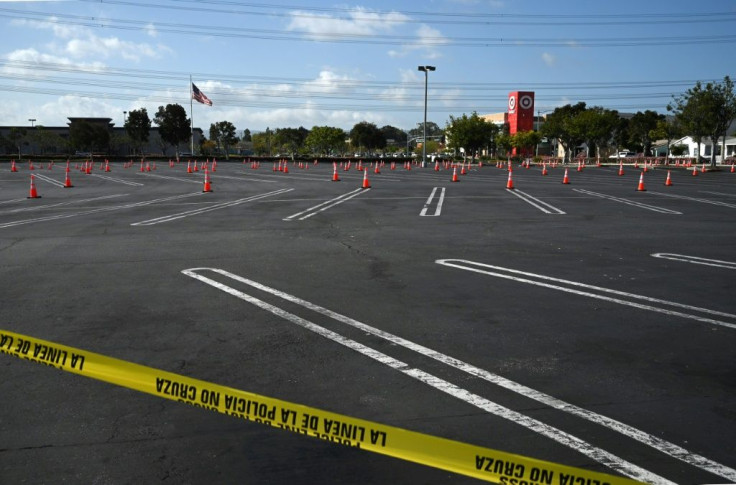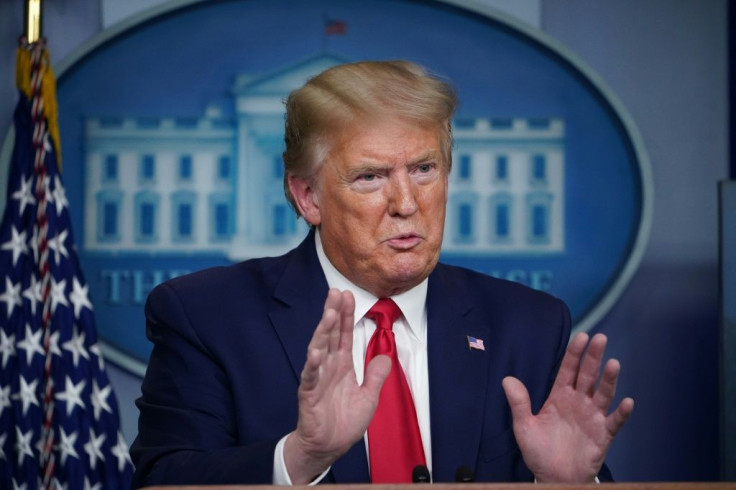US Loan Program Under Fire As Shake Shack Returns SBA Money
A giant emergency lending program for small American businesses devastated by coronavirus shutdowns was under fresh scrutiny Monday after upscale burger chain Shake Shack returned a $10 million loan.
The initiative created an uproar after news that large restaurant chains snapped up funding meant to be a lifeline for mom-and-pop businesses and their workers.
Amid the controversy, Congress is working on another big infusion of funds for the Small Business Administration's Paycheck Protection Program (PPP), after the agency burned through the initial $349 billion in less than 14 days.
But the program, which was ramped up with unprecedented speed amid skyrocketing US unemployment, provided loans for several larger chains.
They included Ruth's Chris Steak House and Potbelly sandwich shops, as well as Shake Shack, a publicly traded company that has grown quickly into a worldwide chain of 275 restaurants with $575 million in sales last year.

The controversy has attracted President Donald Trump's attention.
Asked Monday whether it was fair for such big firms to be using funding reserved for small businesses, Trump told reporters that the government would look at the issue and "some people will have to return if we think it's inappropriate."
Trump, a billionaire owner of properties including hotels that were forced to close during the pandemic, insisted his companies did not benefit from the relief funding.
"I didn't get any, that's for sure," he said.
Critics say big firms have much easier access to capital than the smaller companies the program was meant to target.
"Many businesses with thousands of employees have found loopholes to qualify for these loans meant for small businesses," said Republican Senator Rick Scott of Florida.

"Unfortunately, when it comes to the PPP, millions of dollars are being wasted."
SBA data shows that about nine percent of the PPP funds were for loans worth more than $5 million, while about 32 percent went to loans of $350,000 or less.
The controversy comes as power brokers in Washington are again mobilizing to enable the PPP to resume lending. Trump said Monday that the White House and congressional Democrats could reach an agreement soon.
US Treasury Secretary Steven Mnuchin said Sunday the administration was proposing an additional $300 billion for the program.

Businesses with fewer than 500 employees can apply for the PPP, which covers eight weeks of payroll or rent and converts to grants if companies maintain their employees or rehire laid-off workers by June 30, and use three-quarters of the funding on wages.
But Shake Shack, which has nearly 8,000 US workers, was able to qualify for the loan because individual restaurants only have about 45 employees, the company's leaders said in a statement.
The company, whose menu touts antibiotic-free meat and fresher ingredients, applied "to protect as many of our employees' jobs as possible," Shake Shack Chief Executive Randy Garutti and Chairman Danny Meyer said in the message, adding they were facing losses of $1.5 million a week.
Garutti and Meyer said they did not realize until last week that the PPP funds would run out and opted to return the $10 million after they obtained financing from private sources.
The company entered into an agreement with JPMorgan, Bank of America and Wells Fargo to sell common stock worth up to $75 million, Shake Shack said in a securities filing Friday.
"We've decided to immediately return the entire $10 million PPP loan we received last week to the SBA so that those restaurants who need it most can get it now," they said, as they called for more funding for the program.
Potbelly also received a $10 million loan, and Ruth's Chris reportedly received $20 million.
Andrew Rigie, executive director of New York City Hospitality Alliance, said restaurants of all sizes have been harmed by the coronavirus shutdowns, but smaller businesses ought to get first priority over "those that could be able to survive without government support."
Rigie, whose group represents restaurants and nightlife venues, has heard from dozens of restaurants that "were wrongly shut out" of the PPP, in some cases because they had no relationship with banks that made the loans.
Rigie also called for the government to extend the period for the hiring requirements until at least the end of 2020.
"We need to immediately put in more funding and also make changes so that it works better for the restaurant industry," he told AFP.
JPMorgan Chase, the nation's largest bank, said it is continuing to work on applications during the funding lapse.
The bank said more than 60 percent of its PPP funds have gone to businesses with fewer than 25 employees and 80 percent of the loans have gone to businesses with less than $5 million in revenue.
© Copyright AFP 2024. All rights reserved.





















